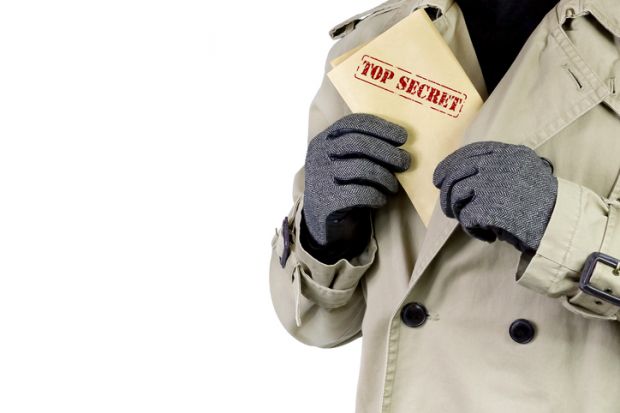Security services may use all sorts of dirty tricks, but journalists’ interrogation techniques have to be strictly above board.
This is no doubt a good thing. Yet it can sometimes feel frustrating. That was certainly true when I began researching the intriguing topic of espionage and the academy for a feature in this week’s issue.
Some of the story is pretty familiar. Everybody knows about the long shadow cast by the Cambridge Spies (or double agents) of the 1940s. I have a colleague who appeared as an extra in a film about them. The aftershocks echo through the novels of John Le Carré. And the latest book on the subject, Richard Davenport Hines’ Enemies Within: Communists, the Cambridge Spies and the Making of Modern Britain, boldly argues that the spies – or at least the discrediting of traditional establishments which followed from their exposure – helped form the climate of opinion that eventually led to Brexit.
What I was trying to do, however, was to work out what is going on today. A recent book by the American journalist, Spy School: How the CIA, the FBI, and Foreign Intelligence Agencies Secretly Exploit America’s Universities, lays down a challenge when it claims that both foreign and domestic intelligence services are “penetrating higher education more deeply than ever”. Even in cases where institutions feel that it is their patriotic duty to help the security services, the spies continue to do things behind their backs.
This is a striking thesis, but is it true? I started asking around among the university leaders I know. Some seemed almost offended by the question. Others implied that there were lots of things they would like to tell me, if only they could. Perhaps unfortunately, I was unable to probe further.
There are deeply polarised views among academics about the security services. Some argue that they are secretive, illiberal and essentially out of control. Others believe they are an essential element in preserving a free society, which academics should be proud to collaborate with – without telling their presidents or vice-chancellors. Are the spooks the only people who are aware of genuine threats from foreign governments and whose warnings we ignore at our peril? Or are they are peddling a form of paranoia, either from a distorted mindset or for self-interested reasons?
As I tried to digest these alternative perspectives, I sometimes felt that I was myself trapped in a spy novel where nothing is as it seems and nobody can be trusted.
I like to think that I got at least some of the story straight and have a pretty good idea about where universities and academics need to take urgent action. Protecting their data and being wary of attractive foreigners at conferences would be a good start. But where everything is a hall of mirrors, how do I know I can even trust myself?
Matthew Reisz's feature, “Following the footprints of spies on campus”, will appear in this week's Times Higher Education magazine and will available online on 19 April
Register to continue
Why register?
- Registration is free and only takes a moment
- Once registered, you can read 3 articles a month
- Sign up for our newsletter
Subscribe
Or subscribe for unlimited access to:
- Unlimited access to news, views, insights & reviews
- Digital editions
- Digital access to THE’s university and college rankings analysis
Already registered or a current subscriber? Login



